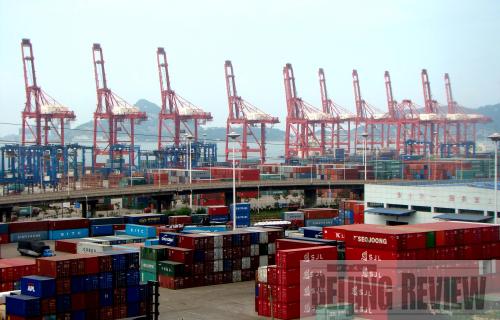|
China had faced inflation before the global financial crisis broke out and inventories of companies had been high. According to financial reports by the country's top eight listed steel companies, their inventories increased from 27.96 billion yuan ($4.09 billion) at the end of last year to 28.98 billion yuan ($4.24 billion) at the end of the first quarter of this year. Quarterly reports of 26 listed textile and garment companies for the first quarter showed that their combined inventories jumped up to 9.48 billion yuan ($1.39 billion) at the end of the first quarter of this year from 6.53 billion yuan ($956.08 million) at the end of last year, surging 45 percent.
The consumption market has remained stagnant after the financial crisis, with inventories increasing so that many companies are operating under capacity. Reducing these inventories will be the major problem Chinese companies face in the coming months and years.
Exporting also presents an obstacle blocking Chinese companies' growth and development. "The European and U.S. markets are hard to recover, and in the next two or three years, it will be difficult for Chinese exports to pick up. Even if this round of financial crisis should pass, it is impossible for Chinese exports to recover to the previous high level," said Cao Jianhai, Director of the Research Office of Investment and Market of the Institute of Industrial Economics under the Chinese Academy of Social Sciences.
"Now many export-oriented companies are suffering reduced orders and operating under capacity. The situation in which profits of Chinese companies, especially those small and medium-sized ones, are declining is hard to be reversed in a short term," said Li.
On numerous occasions, high-ranking Chinese officials have stated that the government will not change its easy monetary policy and proactive fiscal policy to stimulate the economy. The policies of stimulating exports will remain unchanged as well.
 |
|
HOLDING UP: The Lianyungang Port in east coastal Jiangsu Province has effectively pulled out of the economic slump, with cargo shipments in the first seven months increasing 11 percent (WANG CHUN) |
| 